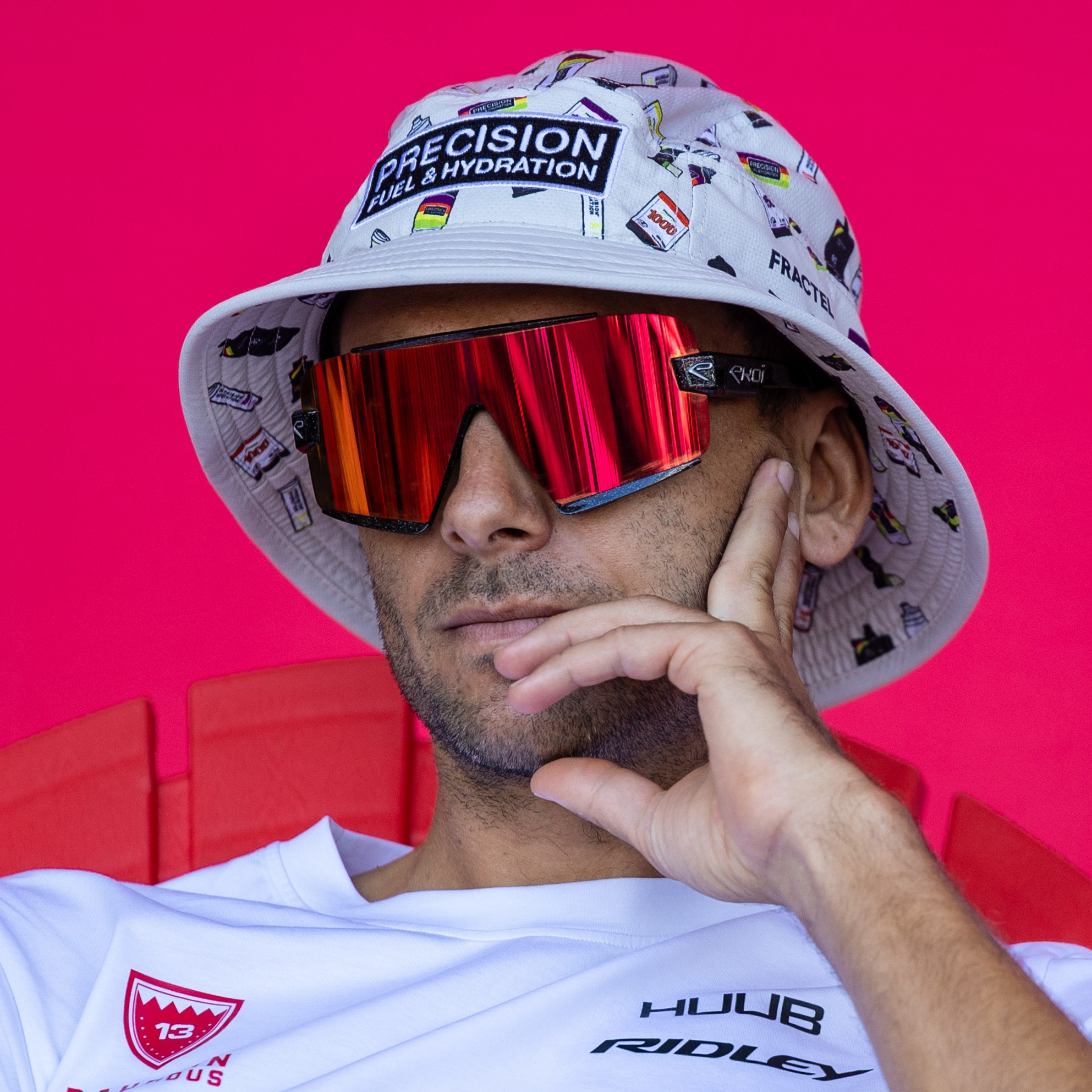
Jelle Geens
IRONMAN 70.3® Geelong
Jelle's headline numbers
Jelle's strategy
Fueling
Carbohydrate is the main fuel you burn when racing. Failing to fuel properly is a leading cause of underperformance in longer races.
Jelle aimed to consume 120g/h of carbs on the bike, which is in line with contemporary research suggesting that fueling at such a high level can maximise exogenous carb oxidation rates. To achieve this, Jelle carried two one litre bottles each with eight scoops of PF Carb Only Drink Mix and water. This ensured he finished the bike leg with good energy levels, as well as provided the foundations for the fastest run split of the day. Although Jelle consumed two PF 30 Gels while running, he had planned to have a third gel at ~55 minutes. Since he felt slightly full already at this point, he decided not to take any risks given he was leading the race and his energy levels were pretty good.
Hydration
Taking on board an appropriate amount of fluid and sodium is essential to maintaining blood volume and supporting the cardiovascular effort needed to perform on race day.
Whilst the absolute amount of sodium and fluid consumed per hour is important, it’s critical to consider these in relation to each other. This is known as 'relative sodium concentration' and it’s expressed in milligrams per litre (mg/L). How much sodium you’re taking in per litre of fluid is more important than the absolute amount taken in per hour.
Sweat sodium concentration (mg/L) is largely genetically determined and remains relatively stable. Knowing how salty your sweat is enables you to replace a good proportion of your sweat losses, which can range from 200-2,000mg/L.
Whilst Jelle’s losses are on the low side, getting his hydration strategy right is still important if he wants to perform at his best.
Learn moreJust like he did at the IRONMAN 70.3® World Championships in 2024, Jelle combined his carb, fluid and sodium intake into two bottles for the bike. To account for his sodium losses, he emptied four Electrolyte Capsules into each bottle alongside the PF Carb Only Drink Mix, creating his own carb and electrolyte blend. He also carried additional water in an aero bottle on his downtube, although the relatively moderate temperature meant that he only consumed ~50ml of fluid from this bottle. On the run, he picked up cups of water and some PH 1000 (Tablets) that were available on-course, but acknowledged that given the option logistically, he would have liked to consume more.
Caffeine
Beyond the Three Levers of Performance (carb, sodium and fluid), caffeine is one of only a few substances that is proven to improve performance for most endurance athletes as it can help stave off mental and physical fatigue.
Jelle pre-caffeinated with a cup of coffee at breakfast and a final PF 30 Caffeine Gel in the last few moments before the swim. He didn’t use any additional caffeine during the race, meaning that his overall intake was slightly below the recommendations to reap the ergogenic benefits the stimulant has to offer. This is an area he could work on for future races, trialing caffeine during training to ideally support his strong performances.
How Jelle hit his numbers
Here's everything that Jelle ate and drank on the day...
Jelle's weapons of choice
Final thoughts
Jelle's full stats
Data Confidence?
There is an adequate level of accuracy in the data collected and the numbers reported. The athlete manages to recall what they ate and drank including most specifics (brands flavours quantities plausible estimations of volumes). However there are estimations made within the data which affect the overall confidence level in the data reported.